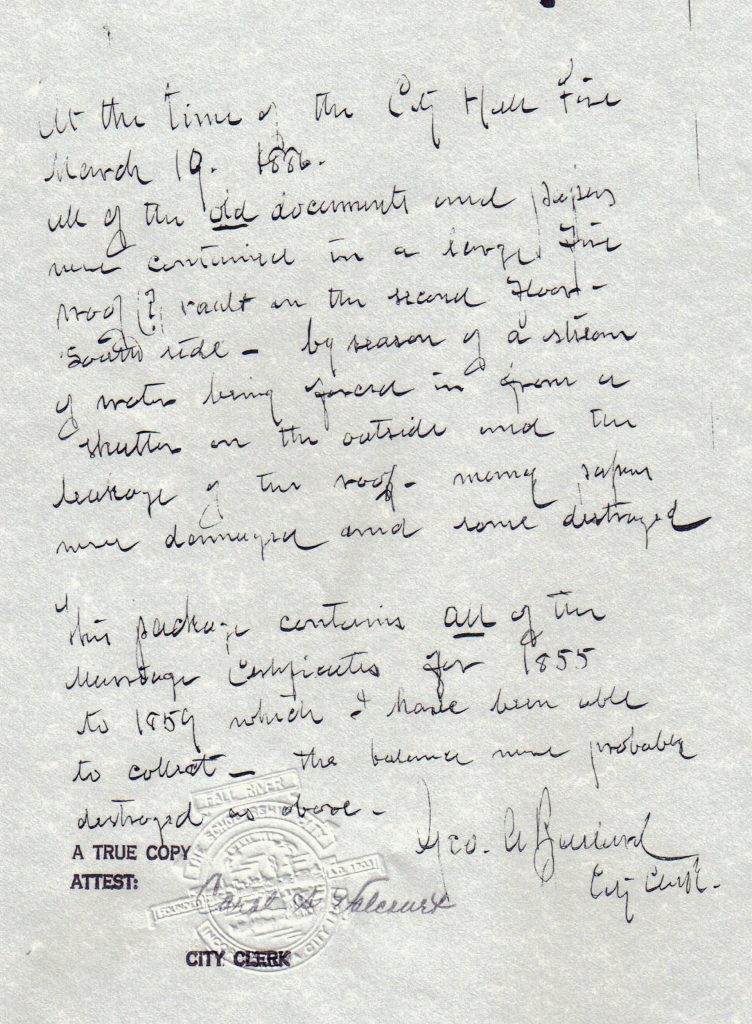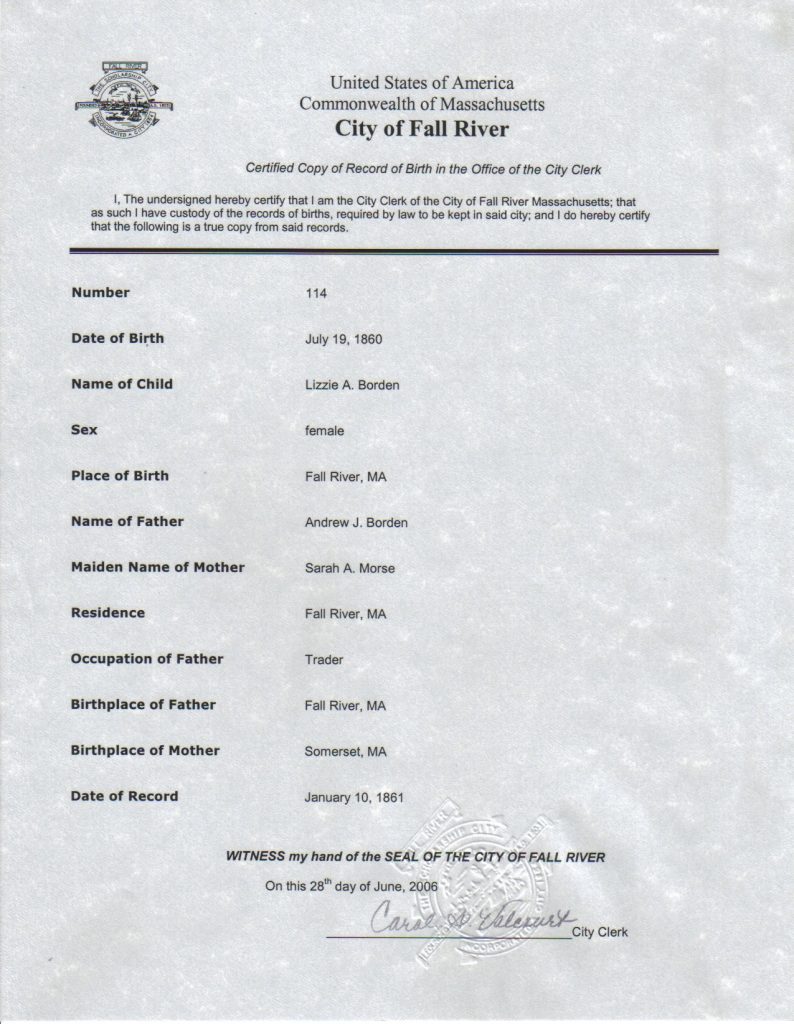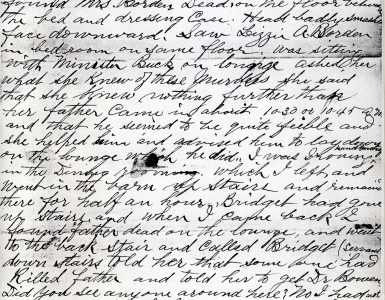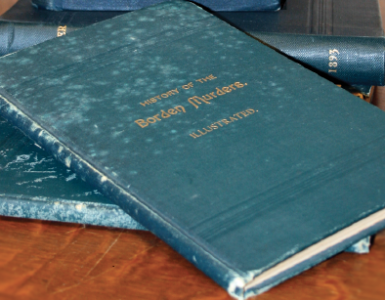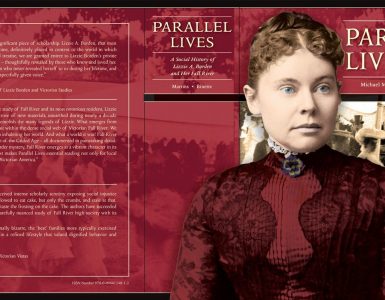by Cynthia Avila
First published in August/September, 2006, Volume 3, Issue 3, The Hatchet: Journal of Lizzie Borden Studies.
The Victorian era was an age of growing industrialization. Large scale fires that devastated cities were all too frequent occurrences. The city of Fall River was no exception to this type of tribulation. The Statewide New Hampshire Notification Association has 22 large-scale Fall River fires in its Incident Archives for 1675-1993. They include:
• The burning of Troy Cotton and Woolen Manufactory’s original building in 1821;
• The Pocasset mill burned in 1843 and was later rebuilt;
• An explosion and fire in the main building of the Globe (Bay State) Print Works and the destruction by fire of the new granite building of American Print Works during a snow storm in 1867;
• The Fall River (White) Mill burned in 1868;
• The Granite Mill fire was considered a holocaust because of 30 deaths and many serious, permanent injuries in 1874;
• The Massasoit Cotton Mill a/k/a The Doctor’s Mill was destroyed in 1875;
• The two upper stories of the American Linen Company Mill #2 were damaged by fire in 1876;
• A gas explosion was blamed for the destruction of the Border City Mill #1 in 1877;
• The Chace Thread Mill received fire damage in 1878;
• The engine and boiler house are all that remained of the Flint Mill after the fire there in 1882;
• Sagamore Mill No. 1 burned swiftly in 1884;
• The Anawan Mill and the Richard Borden Mill had fires in 1889;
• The picker room of the Durfee Mill burned in 1892;
• Another fire occurred at the Sagamore Mill in 1895;
• The rebuilt Pocasset Mill burned again in 1928 and the archives list a second “conflagration” of unknown location in Fall River this year;
• The unoccupied Merchant Mill was destroyed in 1934;
• Three old mills—the Weetamoe Mill, the Osborn Mill No. 1, and the Estes Mill—all burned in 1940. 1

While the above mill names color the Lizzie Borden story and created the fortunes of Fall River, the fire which has caused much controversy and questioning in the Lizzie legend is not included in the above list. On March 19, 1886, a fire broke out in the Fall River City Hall. According to a document provided by Fall River City Clerk’s Office,
. . . all of the old documents and papers were contained in a larger fire proof (?) vault on the second floor—south side—by reason of a stream of water being forced in from a shutter on the outside and the leakage of the roof—many papers were damaged and some destroyed.
This is the fire that destroyed Lizzie Borden’s original birth record in the City of Fall River and has left people wondering about Lizzie’s veracity in pronouncing her christened name as Lizzie Andrew Borden.
Recent questions from new members of The Lizzie Borden Society Forum again brought up the possibility that her first name was really Elizabeth. Other references have called her Lizzie Drew, rather than Lizzie Andrew. With so much historical data available, I thought, there must be a way to resolve this issue.
Then, one recent day, as I poked through drawers of fiche and microfilm on the second floor of the New Bedford Free Public Library, I came across The Massachusetts Birth Index for 1860. I wondered, could Lizzie possibly be here?
Fall River, Volume 132, Page 109 was the answer. Could it really be this easy? I fumbled through the drawers to find the matching microfilm for 1860 in Bristol County. Scrolling anxiously past the information from other towns to reach “Fall River,” I found her—on Line 114—with a date of July 19—officially listed in the Commonwealth of Massachusetts as Lizzie A. Borden. Father and mother: Andrew J. & Sarah A. Mother’s maiden name: Morse. This was THE Lizzie!
By speaking with the library reference staff, I learned that the cities and towns of Massachusetts were required to report births, deaths, and marriages at least once a year. Even if they do not have the information on a local level, a city or town can still issue a certified copy of a birth certificate based on the state’s record. Lizzie’s birth was reported to the state on January 10, 1861.
With a photocopy in hand, I trekked off to the Fall River City Hall in Government Center. At the City Clerk’s Office on the second floor, I wondered whether the personnel there would be annoyed or amused at my request. I was the one who was surprised when I asked for a birth certificate for Lizzie Borden.
“No problem. A certified copy will cost $8.00,” was the reply.
Because of the continuing interest in Lizzie and members of her family, intrepid members of the City Clerk’s staff had already researched many of the principals’ Fall River birth and death records at the state level. They now keep a special folder on hand with what they have already researched.
I paid my $8.00 and came home with a special souvenir, my certified copy of Lizzie A. Borden’s birth. Let this part of the Borden case be officially closed!
Endnote:
1 “Archives 1675 – 1993,” New Hampshire Fire Scanner Frequencies, 19 July 2006
<http://www.swnh.org/otd-sort-year.htm>.



